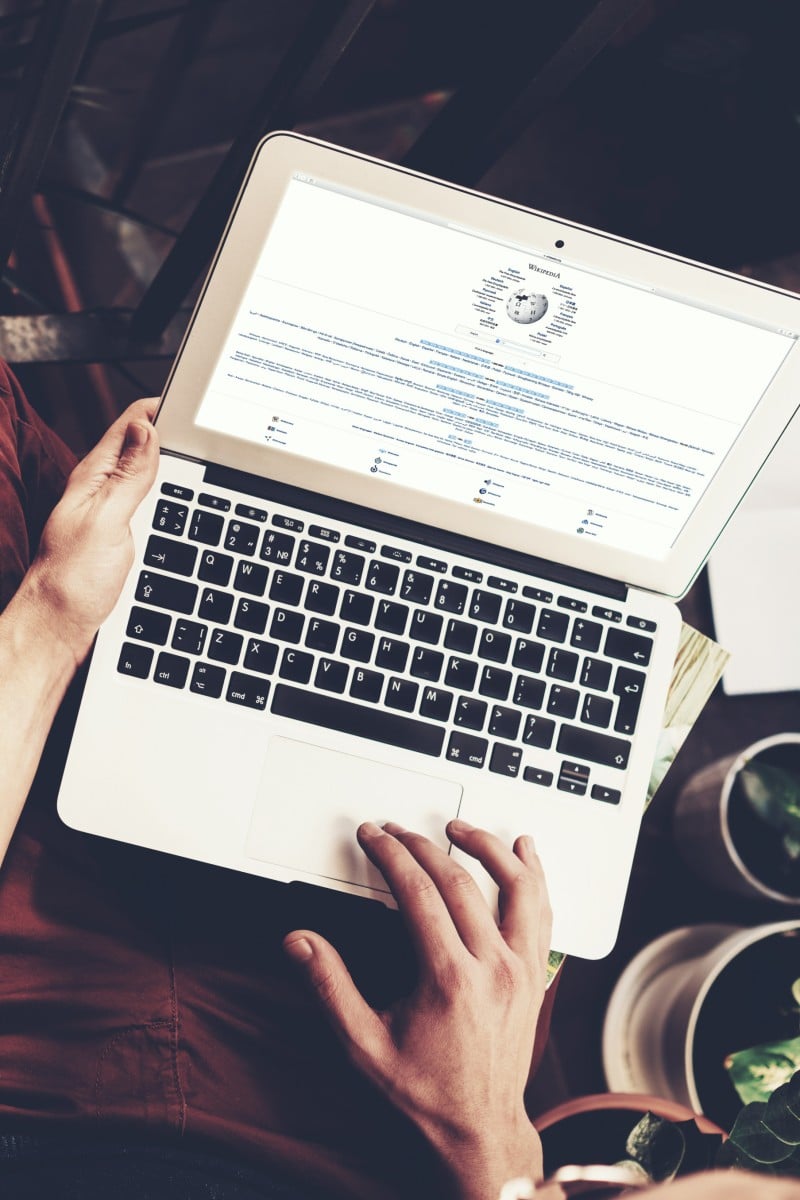
Wikipedia editors fight Covid-19 misinformation, bigotry and even Nazis
- The world’s largest online encyclopaedia is a massively influential source of free information and staffed by a team of volunteer editors
- Since the site doesn’t aim to make money, it is able to avoid the controversies faced by Facebook, often accused of valuing profit over safety
 Wikipedia is probably the first result that pops up when you look for information on the internet, and its team of volunteer editors must battle waves of misinformation. Photo: Shutterstock
Wikipedia is probably the first result that pops up when you look for information on the internet, and its team of volunteer editors must battle waves of misinformation. Photo: ShutterstockFalse coronavirus death reports, a vast gender gap, Nazi “fan fiction”: These are some of the perils an international crowd of volunteers battle across Wikipedia’s tens of millions of online entries.
The world’s largest internet encyclopaedia is often the first result to pop up when users ask the internet a question – and thus a massively influential source of free information. It also reflects humanity’s faults.
With entries that can, in theory, be written by anyone with an internet connection, editing is done mostly by anonymous volunteers who also police the site.
YouTube cracks down on vaccine misinformation
“I always carry my laptop wherever I go, to edit Wikipedia,” said Alaa Najjar, who is based in the Middle East, but asked that specific details about his identity be omitted to protect his privacy.
“It is an addiction, as my friends say. I prefer to say it’s my passion,” he told AFP by email.
Najjar said he contributes to almost 500 entries a week, and as a medical doctor he has been busy fighting a flood of false information unleashed during the pandemic.
Some of the misinformation he’s spotted on Wikipedia includes false reports that Covid-19 killed notable people, as well as inaccurate boosting of some nations’ death and case numbers.
“I reviewed hundreds of articles during the Covid-19 pandemic, and rejected many misleading or erroneous amendments,” said Najjar,
The 20-year-old encyclopaedia, which even has an article devoted to its own controversies, has received positive feedback in recent years for its fact-checking capacities.
How to talk to loved ones who believe in conspiracy theories
Though it’s a sprawling platform, the site does not seek to make money and thus, avoids the profit-over-safety criticism that has battered Facebook.
Instead, Wikipedia has volunteers who are deeply invested in the site’s stated mission of providing access to a written record of all branches of human knowledge.
Of course, it can be a thankless job.
How to tell if you’re reading #fakenews
“One particular editor called me a ‘vandal’ for removing unsourced information,” said Ksenia Coffman, who has battled what she termed “fan fiction” about World War II on Wikipedia, including how Nazis and German generals were depicted.
A strand of writing that ignores the historical context regarding wartime atrocities such the Holocaust, and instead romanticises the German forces, has influenced a subculture that has found its way to the platform.
“Why am I getting resistance when I am trying to correct this? To remove these unsourced globs of text that glorify these supposed Nazi war heroes?” asked Coffman, who lives in California but grew up in the Soviet Union and contributes around 200 edits per month.
She said the resistance from the subculture’s believers, as well as from editors who don’t like to be challenged, is a “tactical mistake” by her detractors that motivates her to stick around and fight the problem.
Other dark spots in human history have a way of popping up on Wikipedia, too.
Women haven’t been as well-covered as men in published written works in general, which means women don’t appear as much as men on Wikipedia.
The importance of an uncensored media
The platform requires reliable, published sources from news outlets or academia to underpin an article, noted Dublin-based volunteer editor Rebecca O’Neill.
“Wikipedia is an uncomfortable mirror because it reflects back all of the systemic knowledge gaps that we have,” she said, adding that she puts in about 40 minutes per day on the platform.
In 2015 it became clear that only 15 per cent of English-language biographies on the platform were about women, sparking an effort to try to balance out the disparity. Six years later, the figure has risen to over 19 per cent, said O’Neill.
Last year, she wrote roughly one Wikipedia article per day, and about 19 biographies on women for every one she did about a man.
“As an individual, I can offer something. I’m just going to set aside the time and do it and not turn it over too much in my head,” she said.